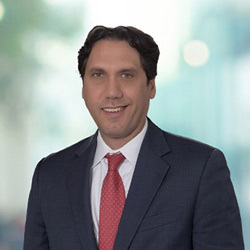
In the seminal case outlining the contours of permissible civil liability against religious organizations, the Missouri Supreme Court in Gibson v. Brewer made clear that civil courts must not be in the business of analyzing or interpreting religious doctrine and administration. Any such “excessive entanglement” between church and state has the effect of inhibiting religion, which of course would violate the First Amendment. For this reason, Missouri courts are precluded from reviewing questions of hiring, ordaining, and retention of clergy in religious organizations. While this prohibition does not mean that religious organizations are immune from all civil liability for the acts of their clergy, the Constitution does require that neutral principles of law be applied without examining a church’s religious doctrine, polity or practice.
In a line of appellate cases that followed Gibson, Missouri appellate courts have made clear that civil courts may not decide negligence-based claims, i.e., what a religious organization should have done in terms of supervising its clergy members, as this would require a court to interpret church policy, practice, and administration. Left open by the Gibson-line of cases until recently, however, was the issue of “what constitutes clergy” for purposes of applying the Gibson-rule. Does it depend on what the church calls the employee, i.e., his or her title? Does it depend on whether the employee is authorized to conduct religious services? Or does some other test apply?
Before the Missouri Court of Appeals’ recent decision in B.B. v. Methodist Church of Shelbina, this issue was unclear. Now we know the answer: If the religious components of the employee’s position or job duties are sufficient to implicate the First Amendment because a court would be required to analyze ecclesiastical matters, then the Gibson rule prohibiting such inquiries applies. In other words, the employee’s job title or formal designation by the religious organization is not necessarily determinative. The relevant inquiry is whether a civil court would be required to involve itself in adjudicating questions related to religious doctrine, polity, and practice. If so, then the Gibson Court’s prohibition against negligence-based claims applies, and Missouri courts are precluded from considering how a reasonably prudent church would have acted under the circumstances.
Of course, the Missouri Court of Appeals in B.B. did not expressly foreclose Missouri courts from considering the title or designation of the employee at issue. In the case of employees formally designated as clergy by a church, for instance, there should be no question that the Gibson prohibition against negligence-based claims would apply (since he or she would unquestionably perform duties of a religious nature). Rather than mechanistically narrowing or restricting the rule to employees or members who are formally designated as “clergy,” however, the Court of Appeals instead looked to the First Amendment rationale of the Gibson rule. In considering the rationale for the Gibson rule, the Court found that any employee of a religious organization whose job duties are religious in nature, such that a civil court would be required to involve itself with reviewing that Church’s internal policies and procedures, should qualify as “clergy” for purposes of the Gibson-rule. In the case of B.B. then, a former church youth director who prayed with children, planned scripture readings for youth to study, and helped with sermons on “Youth Sundays,” would qualify as “clergy” for purposes of the Gibson-rule.
In following the broad principles laid out in Gibson, the Missouri Court of Appeals in B.B. made clear that the First Amendment protections against excessive entanglement with religion applies to all employees, representatives, or volunteers of a church organization—not just those who carry the formal designation as “clergy.” As a consequence of the holding in B.B., religious organizations in Missouri are no longer left to wonder whether First Amendment protections apply in name only.
- Partner
Justin Assouad is a litigator who defends attorneys and law firms in malpractice actions and related proceedings. He has also successfully defended educational, religious, and youth-serving organizations in tort claims brought ...


